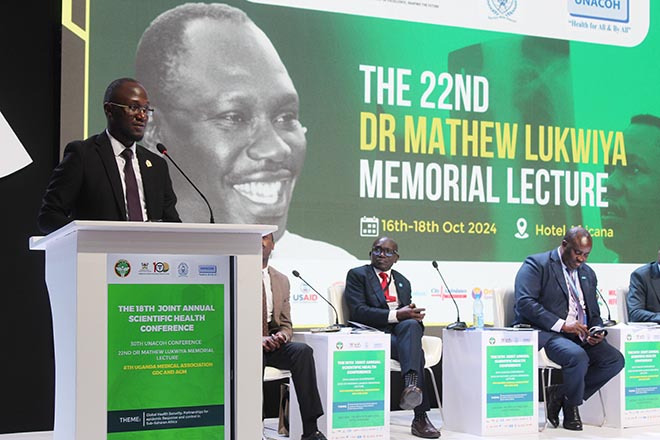
Protecting health workers key to Universal Health Coverage
🟥 18 graded emergencies in multiple African countries









Kampala, Uganda | LOUIS JADWONG | While Uganda has demonstrated that it is possible to nip disease outbreaks in the bud before they spread, the country has also shown that there is a lot yet to be done to protect and save the lives of healthcare workers. This observation was made by Dr Ambrose Otau Talisuna, a Ugandan medical doctor, epidemiologist, and a World Health Organization (WHO) public health expert based in Addis Ababa, Ethiopia. He was delivering the 22nd Dr Matthew Lukwiya Memorial Lecture at Hotel Africana on Friday, October 18.
“The role of our health care workers is to save lives and alleviate suffering, it is NOT to get infected and die because of poor working environments and limited capacities to prevent, detect and respond to epidemics,” said Dr Talisuna.
“Something must be done” to stop increasing number of health workers infected on duty,” he added, and called upon government and development partners to invest in enhancing health security and building resilient health systems.
Paying tribute, Talisuna said that Dr Lukwiya has been and continues to be a symbol that represents all health care workers who have lost their lives in the course of saving the lives of other Ugandans.
The lecture was attended by renowned Ugandan doyens of disease control and epidemiology, Professor Francis Gervase Omaswa and Dr Sam Okware. Also in the audience for the lecture were members of Dr Matthew Lukwiya’s family.
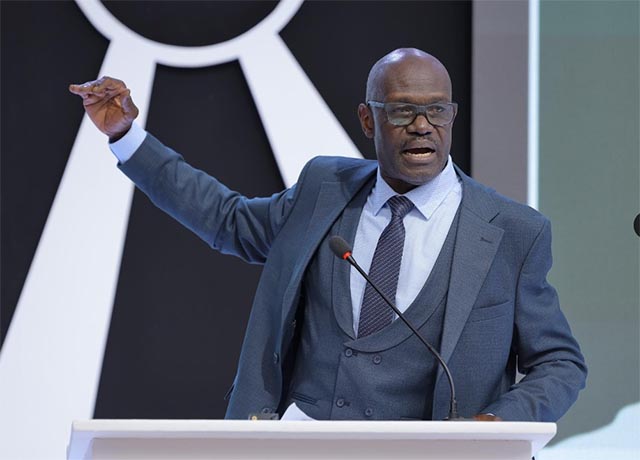


Talisuna said that it is sad that 24 years after Dr Matthew Lukwiya uttered his last words, “ I am going to die now, I pray no one has to die of this disease again”, the country stills fails to keep health care workers safe as they work to keep others safe and alive.
Dr Matthew Lukwiya died December 5, 2000 during the first Ebola Virus Disease (EVD) epidemic in the country. “Many healthcare workers died from October 2000 to February 2001, many of them from Lacor hospital in Gulu district. All of them are heroes but the leading hero is Dr Matthew Lukwiya,” Talisuna remarked.
In memory of Dr Lukwiya and other health care workers who have lost their lives in the line of duty, the Uganda National Association for Community and Occupational Health (UNACOH) has since 2002, held the annual Dr Matthew Lukwiya Memorial Lecture.
The lecture climaxed this week’s 18th Joint Annual Scientific Health (JASH) conference, the 30th UNACOH conference and the 8th Uganda Medical Association (UMA) Grand Doctors Conference (GDC) plus Annual General Meeting (AGM).
What should be done?
Dr Talisuna, who is also senior advisor programs WHO Liaison office to the AU and United Nations Economic Commission for Africa (UNECA), titled his lecture, “Global Health Security: The urgent need for expanding partnerships and protecting frontline health workers”.
He said that Africa is a hot bed for public health emergencies, with Uganda at the epicenter. In remembering Dr Lukwiya, countries in Africa should take measures to be much readier ahead of every epidemic.
Talisuna was in 2000 Uganda’s Principal Epidemiologist, working under the national task force that was led by Dr Sam Okware and Prof FG Omaswa.
VIDEO
Talisuna further said the outstanding, brave role and ultimate sacrifice paid by Dr Lukwiya in 2000, and Dr Jonah Kule and other HCWs in 2007 was still painfully etched in his mind. He explained how HCW infections hamper control efforts by sidelining necessary staff and making HCWs and health care facilities vectors for spreading disease.
“Inadequate preparedness for outbreaks and inadequate protection of healthcare workers is a failure not only of governments, but also of international institutions and donors. We need collective responsibility and accountability for the well-being of our HCWs,” he added
He warned that, “Knowing is not enough-We must apply. Willing is not enough-We must do.”
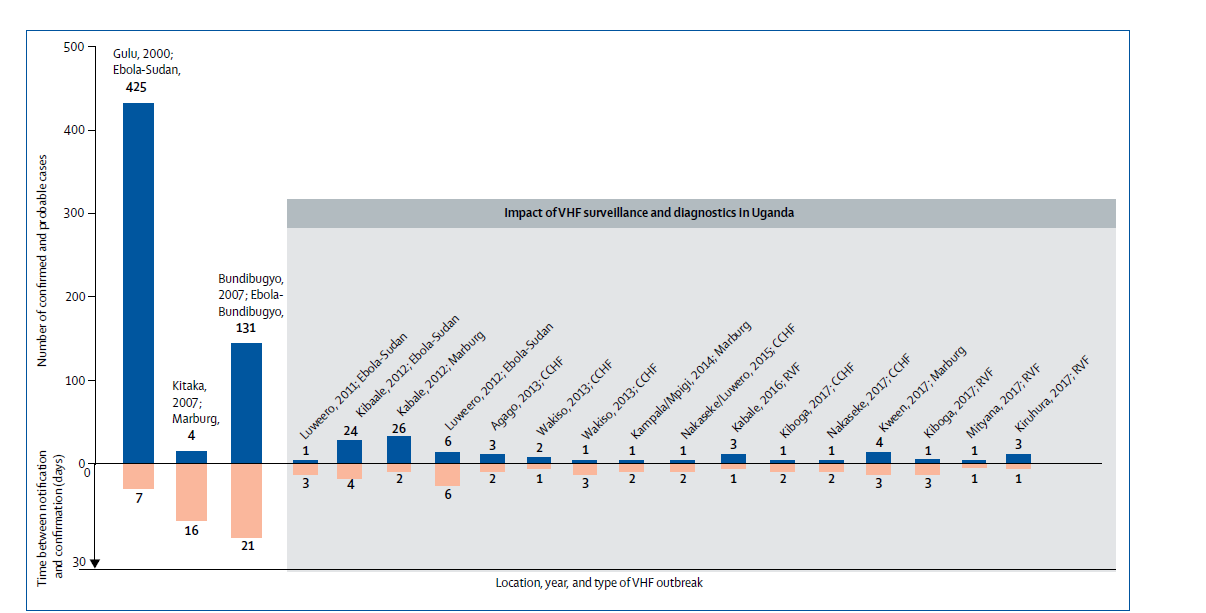
Lessons from COVID-19
Talisuna explained how COVID-19 unraveled the crucial relationship between health system capacities and effective health security response.
He said COVID-19 showed that health system deficiencies hinder effective responses. It showed most countries lacked emergency planning and leadership; Inadequate health work force; Shortages of infrastructure and equipment; Disruptions to medical supply chains. Limited scalability to respond to increased caseloads; Inadequate information on health systems capacities; weak engagement of the private sector.
Talisuna warned of mental health problems among very many health workers after COVID-19. He concluded that “overall health outcomes are not likely to improve without simultaneously addressing both universal health coverage and global health security.”
“Investments in a health system approach would be a double-win,” he said.
Dr Talisuna recommended that a career path for Infection Prevention and Control (IPC) professionals be created. On top of this, greater investment be made in training, tools and resources for a safer health care workforce and ensure HCWs have sufficient IPC training, safe work environment and safety equipment.
“We need to integrate enhancing health security with building resilient health systems. There can’t be genuine global health security without resilient health systems with fit for purpose essential public health functions and adequate resources at all levels,” he said in conclusion to his exactly 35-minute presentation.
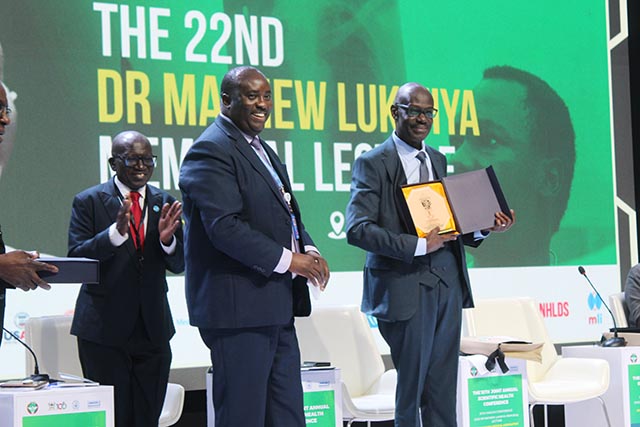
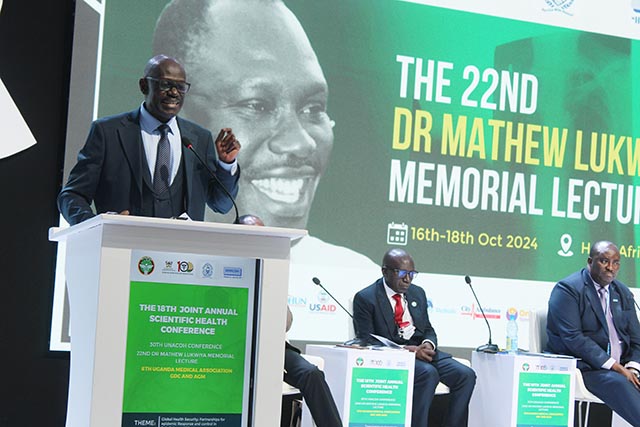

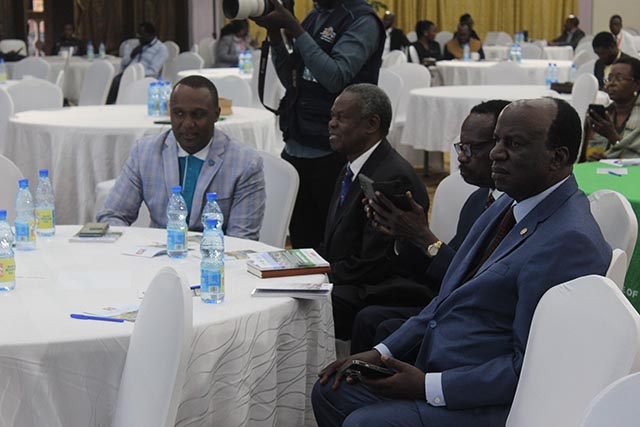
****

Ebola paper: How to prepare for the next inevitable Ebola outbreak: lessons from West Africa

 The Independent Uganda: You get the Truth we Pay the Price
The Independent Uganda: You get the Truth we Pay the Price




That was a great speech!